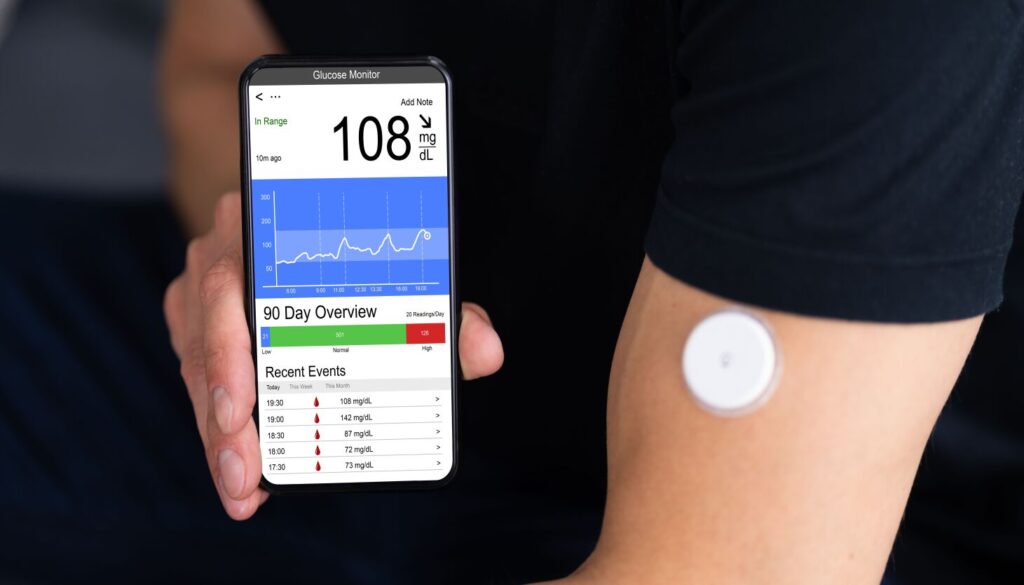In the realm of health, the interconnection between various bodily functions often uncovers surprising correlations. One such intriguing link is between continuous glucose monitors (CGMs) and cognitive impairment. As we delve into this topic, we’ll unravel the profound implications CGMs hold for cognitive health and how managing blood sugar levels can potentially mitigate cognitive decline.
Understanding Cognitive Impairment
Cognitive impairment refers to a decline in cognitive abilities such as memory, attention, reasoning, and language skills. It can manifest in various forms, ranging from mild cognitive impairment (MCI) to severe dementia, including Alzheimer’s disease. The causes of cognitive impairment are multifaceted, involving genetic predispositions, lifestyle factors, and medical conditions.
The Role of Glucose in Cognitive Function
The main source of energy for the brain is glucose. Neurons depend on a steady supply of glucose to function optimally. Fluctuations in blood sugar levels can significantly impact cognitive performance. When blood sugar levels are too high or too low, cognitive functions may be impaired, leading to symptoms such as confusion, difficulty concentrating, and memory lapses.
Continuous Glucose Monitors: A Game-Changer in Diabetes Management
Continuous glucose monitors (CGMs) have revolutionized the management of diabetes by providing real-time insights into blood sugar levels. These wearable devices continuously monitor glucose levels in the interstitial fluid, offering users a comprehensive view of their glucose trends throughout the day and night. By alerting users to fluctuations in blood sugar levels, CGMs empower individuals with diabetes to make timely adjustments to their diet, medication, and lifestyle, thereby improving glycemic control.
Must Read Is wearable technology valuable for Continuous Glucose monitoring?
The Impact of CGMs on Cognitive Impairment
The relationship between CGMs and cognitive impairment stems from the profound effects of blood sugar fluctuations on brain health. By enabling individuals to maintain stable blood sugar levels, CGMs may help mitigate the risk of cognitive decline associated with diabetes. Research suggests that uncontrolled diabetes and fluctuating blood sugar levels may accelerate cognitive impairment and increase the risk of developing dementia.
Studies have shown that individuals with poorly managed diabetes are more prone to cognitive dysfunction, including deficits in memory, executive function, and processing speed. By providing continuous monitoring and feedback, CGMs empower users to optimize their glycemic control, potentially reducing the risk of cognitive impairment and enhancing cognitive function.
Also, read more What Cardiovascular Risks Should Type 1 Diabetes Patients Not Overlook?
Furthermore, the proactive approach facilitated by CGMs allows individuals to identify and address hypoglycemic episodes promptly. Hypoglycemia, characterized by low blood sugar levels, can lead to cognitive dysfunction, seizures, and, in severe cases, loss of consciousness. By minimizing the frequency and severity of hypoglycemic episodes, CGMs contribute to preserving cognitive function and overall brain health.
Empowering Individuals for Cognitive Well-Being
Incorporating CGMs into diabetes management not only enhances glycemic control but also holds promise for preserving cognitive function and reducing the risk of cognitive impairment. By fostering awareness of the intricate interplay between blood sugar levels and cognitive health, individuals with diabetes can take proactive steps to prioritize their cognitive well-being.
Conclusion
The convergence of continuous glucose monitors and cognitive health unveils a compelling narrative of empowerment and proactive management. As we navigate the complex landscape of diabetes and cognitive impairment, CGMs emerge as valuable tools for safeguarding brain health. By harnessing the insights provided by CGMs, individuals can embark on a journey toward optimal glycemic control and cognitive well-being. As research continues to shed light on this fascinating intersection, embracing CGMs may pave the way for a future where cognitive impairment is met with vigilance, resilience, and empowered action.


